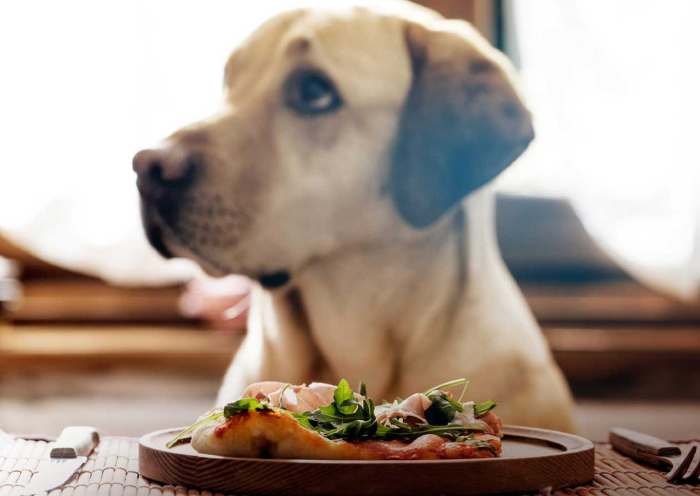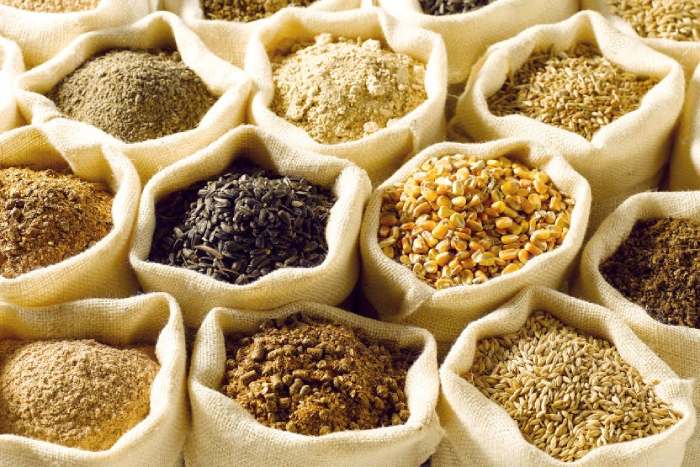Do you ever wonder Is Grain Bad for Dogs? You’re not alone. Many pet owners wonder if grain is an important part of their dog’s diet or if it could have negative effects.
Take, for instance, the case of Lucy, a five-year-old golden retriever. Lucy’s owners switched her to a grain-free diet and noticed an immediate improvement in her coat, energy level, and digestion.
In this article, we’ll explore the pros and cons of grain, the types of grain, how to prepare it, and grain alternatives.

Pros & Cons of Grain in Dog Diets:
Pros of Grain: Positive Aspects and Nutritional Benefits of Including Grain
You can benefit from feeding your dog grains. Feeding your pup grains can provide essential nutrition and various health benefits.
Grains are naturally rich in vitamins and minerals such as B vitamins, magnesium, iron, and zinc. These vitamins and minerals can help keep your pup healthy and support their growth and development.
Grains are also a source of fiber and carbohydrates, important for a balanced diet. Additionally, grains are generally considered safe for dogs if cooked and not raw. Choosing grains free from any artificial colors, flavors, and preservatives is important regarding grain nutrition and safety.
Cons of Grain: Drawbacks and Considerations in Canine Nutrition
However, there are a few potential drawbacks to consider before feeding your pup grain-based products. One of the main cons is the potential for allergies and sensitivities. Dogs can be allergic to grains just like humans, and this can manifest in a wide range of symptoms. Also, some dogs are sensitive to grains and can suffer from digestion issues or skin irritations when consuming grains.
| Allergies | Sensitivities | Symptoms |
|---|---|---|
| Itching | Gas | Vomiting |
| Sneezing | Diarrhea | Itching |
| Runny Eyes | Skin Irritation | Coughing |
| Swelling | Bloating | Hair Loss |
| Loss of Appetite |
It is important to note that grains are not inherently bad for your pup, but it is important to be aware of potential problems. Since dogs can have allergies, sensitivities, and other related issues, monitoring their reactions after feeding them grain-based products is important. It is best to consult with a vet if you notice any symptoms.
Types of Grain: Exploring Varieties and Their Characteristics in Dog Food
You can feed your pup a variety of grains, such as wheat, corn, barley, oats, and rice. Grain-based diets can benefit your pup as they contain complex carbohydrates, proteins, and essential vitamins and minerals. However, there are also grain-free diets that are becoming increasingly popular among pet owners.

Grain-based diets are usually a good source of fiber and can be a healthy option for dogs. They can help keep your pup fuller for longer and help regulate digestion. On the other hand, grain-free diets are often made with high-quality proteins but may lack some of the essential nutrients in grain-based diets.
When deciding which diet is best for your pup, it’s important to consider their individual nutritional needs. You also need to factor in the cost of the food, as grain-free diets may be more expensive than grain-based diets. Speak to your vet to find the right diet for your pup.
Guidelines for Properly Incorporating Grain into Canine Meals
Once you have chosen the right grain-based or grain-free diet for your pup, it’s important to prepare it correctly.
When selecting grain sources, look for minimally processed whole grains with the most nutritional value. Whole grains should be free of additives, preservatives, and any other unnecessary ingredients.
Regarding grain nutrition, some grains like quinoa, barley, and oats are great sources of dietary fiber, vitamins, and minerals.
Be sure to cook the grain before feeding it to your pup, as uncooked grains can cause digestive issues. Also, avoid using too much oil or salt when preparing the grain.
Finally, check for signs of spoilage or contamination before serving.
With the right preparation, grains can be a healthy, nutritious part of your pup’s diet.
Alternatives to Grain: Exploring Other Dietary Options for Dogs with Specific Needs
However, several other options are available if you’re looking for alternatives to grain-based dog food. Grain-free diets often rely on high-protein ingredients like meat, vegetables, and fruits. Grain-rich foods, on the other hand, usually consist of oats, barley, rice, and other complex carbohydrates.
Here are a few other alternatives to consider:
- Vegetarian or vegan diets: These are based on plant-based proteins like lentils, legumes, and quinoa.
- Raw food diets are based on raw, uncooked meat, vegetables, and fruits.
- Home-cooked diets comprise a balanced combination of whole grains, proteins, and vegetables.
- Freeze-dried diets: These are prepared meals made of freeze-dried ingredients such as proteins, vegetables, and fruits.
No matter which alternative you choose for your dog, consult with your veterinarian first to ensure that your pet is getting the necessary nutrients.
Frequently Asked Questions:
Whole grains like oatmeal and brown rice are great alternatives to traditional kibble. They provide dietary supplements and important vitamins that benefit your pup’s health. Look for whole grain-based food and treats to give your dog the nourishment they need.
Yes! While grain-free diets are popular, studies suggest grain substitutes may not be healthier. Diet alternatives should be discussed with a vet as health risks may be associated with feeding grain to dogs.
It’s important to consider grain substitutes and food allergies when deciding how much grain to feed your dog—generally, feed according to your dog’s size, activity level, and age. Consult your vet for more specific advice.
No, grain is not the only option for a healthy diet for your dog. Many alternative diets exist, such as organic, raw, or home-cooked meals. You can also look for organic grains to provide nutritious options.
When feeding grain to your dog, consider grain alternatives if your pup has allergies. Be aware of symptoms such as itchy skin or digestive issues, which may indicate an allergy. Consult your vet for nutrition advice tailored to your dog.
Conclusion:
It’s important to remember that not all grain is bad for dogs and that it can be beneficial in the right amounts and forms. Ultimately, deciding what’s best for your pup is up to you. Consider the pros and cons, types of grain, and alternative options before deciding.
Whether you opt for grain-based dog food or an alternative, you can rest assured that your pup is getting the nutrition they need.

Hey there, I’m Janet Brooks, a dog-loving student from California. I’m all about helping pups in need, especially those without homes. Me and my awesome friends work together to give shelter and love to stray dogs. Oh, and I also write blogs about dogs to share helpful info.